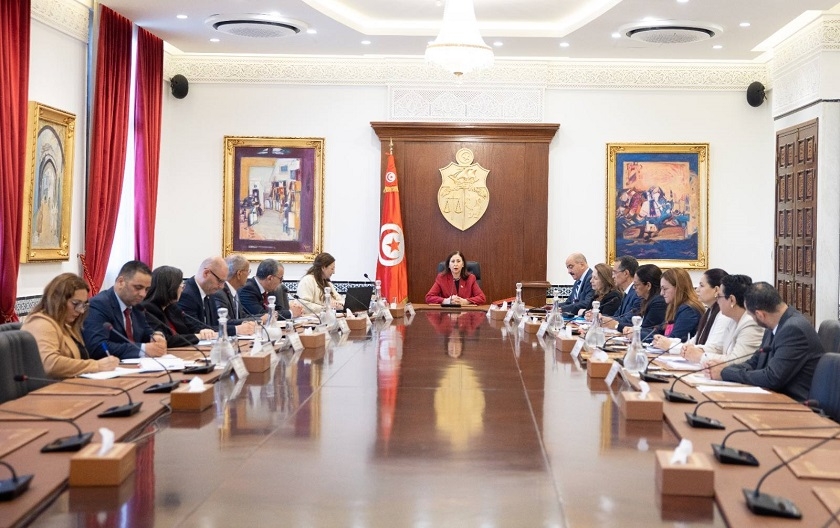A restricted ministerial council meeting was held on Tuesday, August 5, 2025, at the Kasbah, chaired by the Head of Government, Sarra Zaâfrani Zanzri, to review the United Nations Economic and Social Commission for Western Asia (ESCWA) initiative on debt-for-climate investment swaps.
Tunisia has officially joined this initiative, which aims to allow heavily indebted countries to redirect repayments of their bilateral debts towards financing projects aligned with their national development priorities. The initiative is based on an innovative financing mechanism focused on addressing climate challenges and promoting sustainable development.
The Head of Government emphasized the importance of this opportunity, which could help improve the state’s financial sustainability and strengthen investments in strategic sectors. She highlighted key areas such as water resource management, wastewater treatment, energy transition through renewable sources, coastal protection, forest rehabilitation, and regional development.
Ms. Zaâfrani Zanzri affirmed that this approach fully aligns with the Tunisian government’s vision, as presented at the 4th International Forum on Financing for Development held in Seville, Spain, from June 30 to July 3, 2025. The objective is to build a more equitable and resilient economy, breaking away from models of dependency and inequality, by relying on integrated tripartite agreements (debtors, creditors, and donors) based on measurable results.
The initiative also seeks to improve citizens’ living conditions, preserve jobs, create new opportunities in the poorest regions, and support small-scale farmers.
A preliminary list of priority projects was presented during the meeting. These projects were identified based on proposals from local, regional, and interregional councils as part of the development of the 2026-2030 development plan, built using a bottom-up approach.
The sectors concerned include:
- Sustainable water management,
- Development of renewable energy,
- Expansion of wastewater treatment plants,
- Forest restoration,
- Coastal protection.
The proposed projects aim to achieve seven major outcomes:
- Expanded access to potable water;
- Improved wastewater treatment through modern technologies;
- Increasing the share of renewable energy to 35% of the national energy mix by 2030;
- Rehabilitation of forest ecosystems;
- Strengthening the resilience of coastal areas to climate change;
- Improving the living conditions of vulnerable populations and creating jobs;
- Increasing investment in sustainable development goals.
At the conclusion of the meeting, the council recommended accelerating discussions with international partners to finalize debt-swap agreements by the end of 2025, aiming to quickly launch concrete projects in the most marginalized regions.
Source: businessnews




